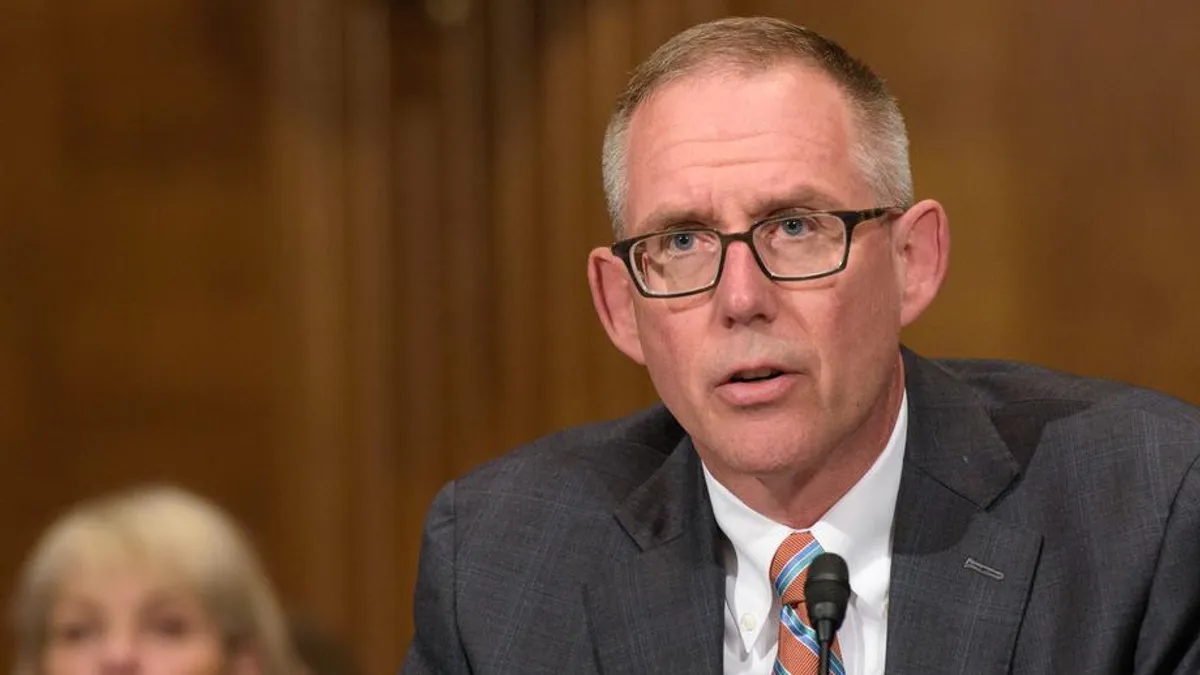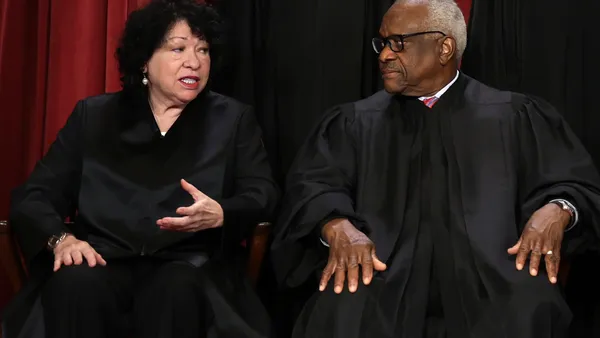Dive Brief:
- The National Labor Relations Board (NLRB) says it is considering rulemaking to address the standard for determining joint-employer status under the National Labor Relations Act (NLRA). Board Chairman John F. Ring requested the submission, the Board said, which was included in the agency's spring regulatory agenda.
- The NLRB has begun the internal process needed to consider rulemaking on the joint-employer standard. All proposed rules require approval by a majority of the five-member board; the next step is issuing a Notice of Proposed Rulemaking.
- Calling joint-employer status one of the most critical issues in labor law today, Ring said the current uncertainty over the joint-employer standard undermines employers’ willingness to create jobs and expand business opportunities. He said he believes that notice-and-comment rulemaking is the best way to consider all views on what the standard should be.
Dive Insight:
Many in the employment community had hailed Hy-Brand Industrial Contractors, Ltd. and Brandt Construction Co. as the solution to clarity issues with the expansive Browning-Ferris standard. But the NLRB vacated Hy-Brand in February, which essentially reinstated the previous definition of "joint employer" that included companies that have "indirect control" over workers. The board's inspector general questioned the validity of Hy-Brand because board member Bill Emanuel was a lawyer at Littler Mendelson P.C., the firm involved in the original Browning-Ferris case, leading to its rescission.
The Hy-Brand rescission created uncertainty in the business community. And while confusion continues regarding the future of Hy-Brand, rulemaking may be the Republican majority board's best option as far as attempts to overturn Browning-Ferris go.
In an email to HR Dive, Competitive Enterprise Institute labor policy expert Trey Kovacs praised the NLRB's latest move: "The NLRB’s announcement of a new joint employer rulemaking is a better, less politicized way than adjudication to deal with labor policies that impact businesses and jobs across the nation."
The NLRB tends to rely on adjudication to set policy, but the rulemaking process is available as well, and includes advance notice of changes and the opportunity to comment.













